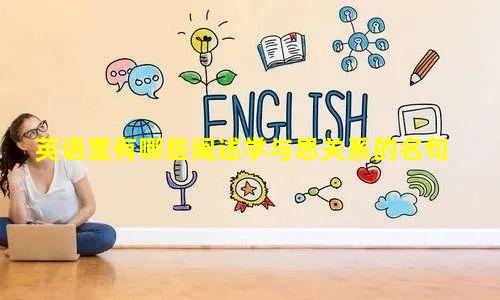英语里有哪些阐述学与思关系的名句
- 作者: 陈瑞瑾
- 来源: 投稿
- 2024-10-01
1、英语里有哪些阐述学与思关系的名句
"To think is to learn, to learn is to think." Confucius
"Knowledge is power." Francis Bacon
"Cogito, ergo sum." (I think, therefore I am.) René Descartes
"Education is not the filling of a pail, but the lighting of a fire." William Butler Yeats
"The mind is not a vessel to be filled, but a fire to be ignited." Plutarch
"Thinking is the hardest work there is, which is probably the reason so few engage in it." Henry Ford
"Wisdom is not a product of schooling but of the lifelong attempt to acquire it." Albert Einstein
"The important thing is not to stop questioning. Curiosity has its own reason for existing." Albert Einstein
"It is the mark of an educated mind to be able to entertain a thought without accepting it." Aristotle
"The unexamined life is not worth living." Socrates
2、表示学与思的关系的名词
思辨
3、学和思的关系英语作文
The Relationship between Learning and Thinking
Learning and thinking are two inseparable processes that contribute to our intellectual development. While learning refers to the acquisition of knowledge and information, thinking involves the active manipulation and application of that knowledge to make sense of the world around us. In this essay, we will explore the intricate relationship between learning and thinking, highlighting their interdependence and how they complement each other.
Learning provides the foundation for thinking. It equips us with the necessary knowledge and concepts that serve as building blocks for our thoughts. Through learning, we accumulate a vast repertoire of facts, ideas, and theories that form the raw material for our cognitive processes. Without a solid foundation of knowledge, our thinking would be shallow and limited.
Conversely, thinking enhances learning. By actively engaging with the material we learn, we reinforce our understanding and make it more meaningful. Thinking helps us to connect new knowledge to existing knowledge, organize information, and draw inferences. It challenges us to question assumptions, critically evaluate evidence, and develop new insights.
Moreover, learning and thinking are interdependent processes. Learning triggers thinking, and thinking leads to deeper learning. A virtuous cycle is created, where each process feeds into the other. As we learn new things, we stimulate our curiosity and motivation to think more critically. These thoughts, in turn, provide us with new perspectives and questions, which drive us to seek further learning.
This relationship is particularly evident in active learning strategies. When we engage in activities that require us to apply our knowledge, we are not only learning but also actively thinking. Problemsolving, research projects, and simulations are all examples of active learning techniques that promote both the acquisition of knowledge and its application.
Learning and thinking are not sequential processes; they occur simultaneously and complement each other. Effective learning is not merely about memorizing facts but about developing a deep understanding through the active engagement of our minds. By fostering a close relationship between learning and thinking, we can cultivate a lifelong love of learning and develop the critical thinking skills essential for success in a rapidly changing world.
4、有关学与思关系的名句
学思结合则知之深,学思分离则浅浮。——《礼记》
知行合一,始能至善。——王阳明
学而不思则罔,思而不学则殆。——孔子
不学无术,学而不思则罔。——《论语》
学以致用,思以明理。——《古今贤文》
知是行之始,行是知之成。——朱熹
学须反复问疑,始能得其奥妙。——陈天祥
读书破万卷,下笔如有神。——杜甫
勤学如春起之苗,不见其增,日有所长;辍学如磨刀之石,不见其损,日有所亏。——吕坤
学而不思则罔,思而不学则殆。——《庄子》
学然后知不足,教然后知困。——孔子

